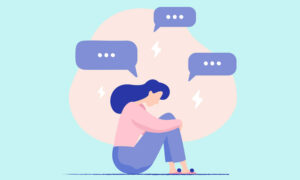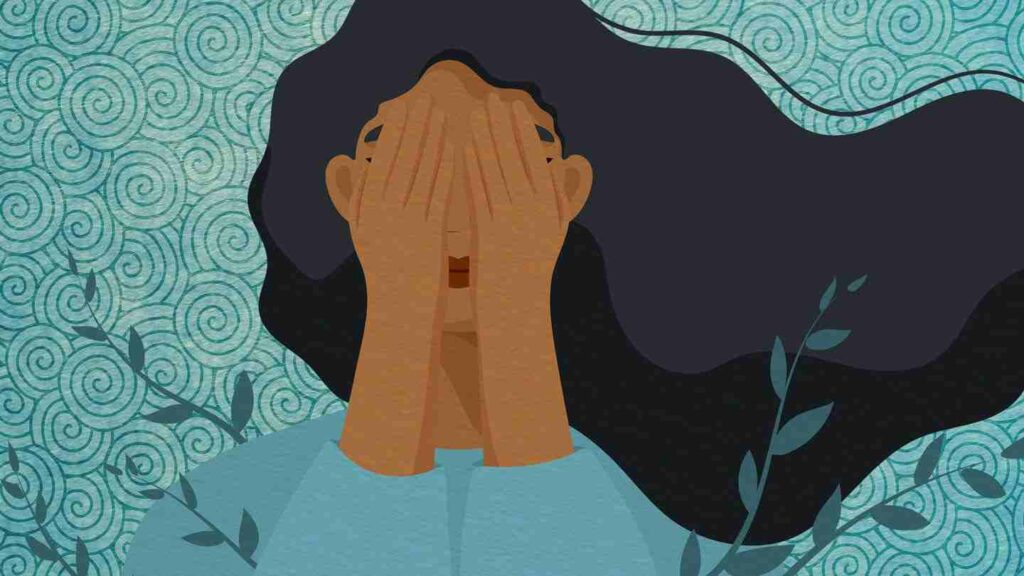Depression is a serious mental illness that can affect anyone, regardless of age, gender, or race. According to the World Health Organization, depression is the leading cause of disability worldwide. There are many different types of depression, but recurrent depression is one of the most common. If you are suffering from recurrent depression, it can be difficult to know where to turn for help. In this blog post, we will discuss some ways that you can deal with recurrent depression and get your life back on track!
Contents
What Is Recurrent Depression?

Recurrent depression is a form of depression that comes back over time. It can happen after you’ve had an episode of major depression or it can happen on its own. For some people, it happens every few years. For others, it can happen much more often.
Recurrent depression is different from having major depressive episodes that are spaced out over time. With recurrent depression, the episodes tend to happen close together. And, unlike major depressive episodes, you may not fully recover in between episodes.
What Causes Recurrent Depression?
The cause of recurrent depression is not yet known. However, some risk factors may make you more likely to experience it. These include:
Family history of depression: If you have a parent or sibling who has recurrent depression, you may be more likely to experience it yourself. For example, if your mother has recurrent depression, you have a 50% chance of developing it.
Brain changes: Some people with recurrent depression may have changes in their brain structure or function. This can make them more likely to experience depressive episodes.
Having had an episode of major depression: If you’ve had an episode of major depression in the past, you may be more likely to experience recurrent depression.
Chronic stress: Stressful life events or ongoing stress can trigger episodes of depression. If you’re facing chronic stress, take steps to manage your stress and protect your mental health.
Common triggers: Some events or situations may trigger a depressive episode, even if you’ve been managing your depression successfully. Be aware of your triggers and have the plan to deal with them.
A personal history of depression: If you’ve had depression in the past, you’re more likely to experience it again.
Certain medical conditions: Depression is more common in people with certain medical conditions, such as heart disease, cancer, stroke, and Parkinson’s disease.
Drug or alcohol abuse: Substance abuse can trigger or worsen depression.
Certain medications: Some medications, such as corticosteroids and interferon, can increase your risk of depression.
Stressful life events (e.g., job loss, divorce, death of a loved one): It is not uncommon for people with recurrent depression to experience one or more stressful life events before the onset of their illness. While it is impossible to say for sure whether or not these events cause depression, they can certainly contribute to its severity and duration.
Symptoms
The symptoms of recurrent depression can vary from person to person, but there are some common ones that many people experience. These include:
- Persistent feelings of sadness, anxiety, or emptiness
- Loss of interest in activities that used to be enjoyable
- Sleep problems (insomnia or excessive sleeping)
- Loss of appetite or overeating
- Fatigue and low energy levels
- Difficulty concentrating
- Feelings of worthlessness or guilt
- Thoughts of death or suicide
These are the symptoms that are most commonly associated with recurrent depression, but it is important to remember that everyone experiences the illness differently. If you are experiencing any of these symptoms, it is important to seek professional help.
Treatment

There are several different treatment options available for recurrent depression, and the best course of action will vary from person to person. These include:
Seeking professional help: If you are struggling with recurrent depression, don’t hesitate to seek professional help. There are many treatment options available, and with the right support, you can start feeling better.
Psychotherapy
This can help you identify and change negative thought patterns and behaviors that contribute to your depression.
- Cognitive Behavioral Therapy (CBT): It is a type of psychotherapy that is particularly effective in treating depression.
- Electroconvulsive therapy (ECT): This is a treatment that involves passing electrical currents through the brain. It is typically used as a last resort for people with severe depression who have not responded to other treatments.
- Interpersonal therapy: This therapy focuses on your relationships with other people and can help you to identify and change patterns of behavior that contribute to your depression.
Medication
Antidepressant medications can help treat the symptoms of recurrent depression. Your doctor will work with you to find the best medication or combination of medications for your particular situation.
Antidepressants can help relieve the symptoms of depression. If one type doesn’t work for you, don’t give up – there are many different types available.
Support system
Having a strong support system is crucial for managing recurrent depression. This includes family, friends, and/or a therapist. These people can provide you with emotional support and help you stay on track with your treatment plan. Additionally, they can offer practical assistance, such as help with childcare or transportation.
This can be an effective way to relieve the symptoms of recurrent depression.
If you are struggling with recurrent depression, it is important to seek professional help. There are many effective treatment options available, and with the right support, you can start feeling better.
Lifestyle changes
Several lifestyle changes can help improve the symptoms of recurrent depression. These include:
Exercising regularly: This can help improve your mood and energy levels. For example, try going for a walk or jogging every day, or joining a yoga class.
Eating a healthy diet: Eating nutritious foods can help improve your mood and energy levels. Make sure to include plenty of fruits, vegetables, and whole grains in your diet.
Getting enough sleep: Getting enough rest can be crucial for people with recurrent depression. Make sure to get at least eight hours of sleep every night.
Reducing stress: Stress can make depression symptoms worse, so it’s important to find ways to reduce stress in your life. For instance, try yoga or meditation, or take up a new hobby.
Making social connections: Spending time with friends and family can help reduce the symptoms of depression. Make sure to schedule time for social activities every week.
Avoiding alcohol and drugs: Substance abuse can worsen the symptoms of depression. For example, try to avoid drinking alcohol or using recreational drugs.
These lifestyle changes can help improve your overall health and well-being, which can in turn help reduce the symptoms of recurrent depression.
Conclusion
It may be concluded that recurrent depression is a serious problem that should not be taken lightly. This type of depression is a reoccurring episode of major depression. Several things can be done to help deal with recurrent depression. One is to keep a journal detailing your thoughts and feelings. This can help identify any patterns that may be triggering your depressive episodes.
If you or someone you know is dealing with this type of depression, it is important to seek professional help.
For further information and suggestions, please contact Therapy Mantra. We have a team of expert therapists and psychiatrists that can help you overcome this problem. Get in touch with us right away to learn more about our services. You may also make an online therapy session or download our free Android or iOS app.


